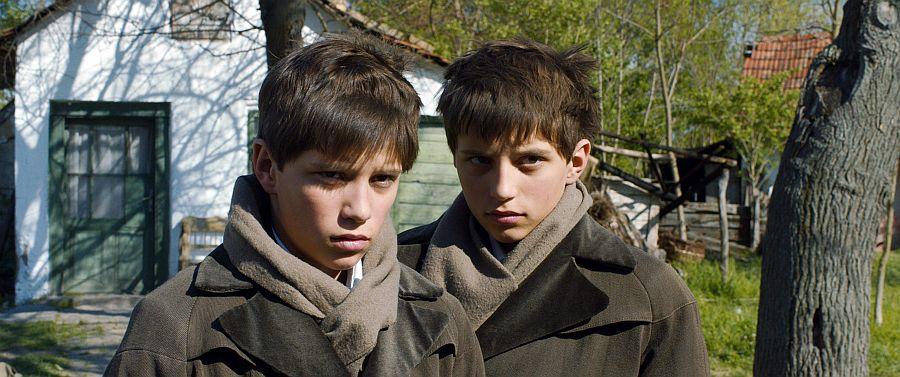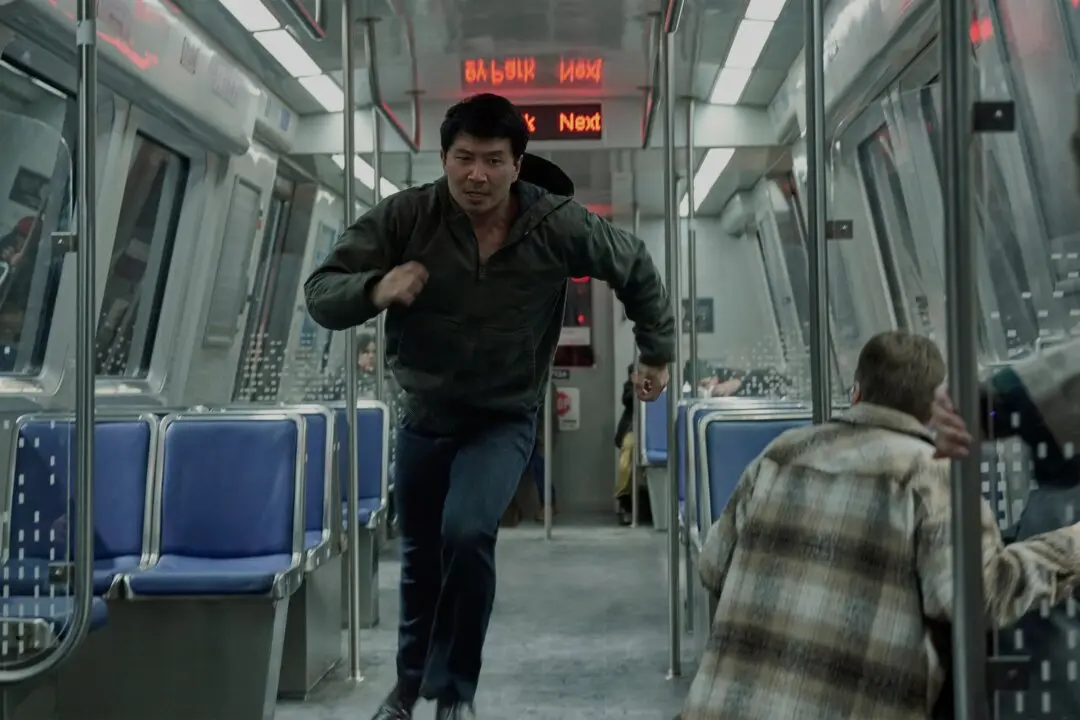Perhaps no nation’s history during World War II is as torturously complex as the Hungarian experience. Although Regent Miklós Horthy largely refused to abet National Socialism’s Final Solution, his resistance was tragically reversed by a full-scale occupation and the Arrow Cross coup d'état.
In war-torn 1944, twin 13-year-old brothers will learn the worst lessons possible from Germans, Soviets, and their fellow Hungarian countrymen alike in János Szász’s Oscar-nominated “The Notebook.”
The nameless twins had lived sheltered lives, but the war’s grim turn changes everything. Fearing for their safety in the city, their mother deposits them with the grandmother they have never known.
She is not pleased to meet them. Conspicuously estranged from her daughter, the old woman feels no emotional bond to the two boys. Reluctantly accepting their presence on her farm, she works them like animals for meager rations. When they complain, she beats them before drinking herself into a stupor.
The boys receive similar treatment from the villagers, who openly refer to the old woman as a witch. As a survival strategy, the twins banish all memory of their parents. To harden their bodies and deaden their souls, they institute a training regimen of physical abuse and voluntary starvation.
Their only friend is “harelip,” a somewhat older girl on a neighboring farm, who tutors them in criminal techniques. Yet, they still document their daily lives in the notebook, in accordance with the father’s instructions.
Based on Agota Kristof’s novel, “The Notebook” is sort of the fictional antithesis of Anne Frank’s Diary. While the brothers document the horrors of war from a young person’s perspective, there is nothing life-affirming or empathic to glean from their journal entries.
Instead, it is a harrowing account of their efforts to become inhuman in order to survive an inhumane situation. Yet, the brothers do not evolve into true sociopaths. Rather, their remnants of decency consistently manifest themselves in problematically violent ways.
Ironically, the brothers’ only protector is the local ranking German officer, who displays suggestively pedophilic tendencies. Ensconced in their grandmother’s former home, he appreciates their singular training sessions. Not so surprisingly, when the Soviets arrive, they act more like rapacious conquerors than liberators. Yet, the worst abuses of Hungarians are arguably committed by other Hungarians.
Since the brothers largely react with such stoic indifference to each new outrage, it is difficult to pass judgment on the young leads, András and László Gyémánt, except to commend their poker faces.
In contrast, Piroska Molnár is an absolute dread terror as their Grandmother Dearest, but her monster is not without pathos. As the officer, Ulrich Thomsen is the model of Teutonic severity, whose black leather neck-brace adds creepy “Fifty Shades” overtones to his appearance.
At times, Szász cranks up the privations and tribulations to almost excessively lurid levels, but the film’s black soul consistently pulls it back into a stark naturalism. Innocence is not merely killed in “Notebook”; it is incinerated and its ashes are dispersed into nothingness.
Yet, irony still asserts itself in uncomfortable ways. Recommended with respect rather than affection for those who appreciate uncompromising morality tales, “The Notebook” opens this Friday, Aug. 29, in New York at the Quad Cinema.
The Notebook (Le Grand Cahier)
Director: János Szász
Starring: László Gyémánt, András Gyémánt, Piroska Molnár
Running time: 1 hour, 52 minutes
Release date: Aug. 29
Rated R
3.5 stars out of 5
Joe Bendel writes about independent film and lives in New York. To read his most recent articles, please visit www.jbspins.blogspot.com




